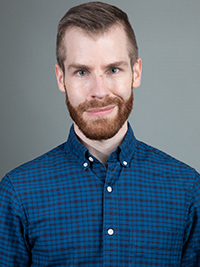
Assistant Professor
Department of Medicine, Hematology/Oncology Division
University of Chicago
Chicago, IL
Elucidating the role of hypoxia in regulating fibroblast heterogeneity in pancreatic cancer
Overview
Aim: Therapy
Pancreatic cancer is the third leading cause of cancer-related deaths in the United States. Currently available therapies to treat PDAC patients provide only limited clinical benefits. One reason for this is the complexity of this disease. Pancreatic cancer is characterized by an aberrant fibro-inflammatory stroma consisting mainly of cancer-associated fibroblasts (CAFs) that are involved in tumor progression and therapy resistance. Many but not all of the fibroblasts in the tumor interact with and help tumor cells to survive and grow. How to selectively target tumor-promoting CAF populations is an important and clinically relevant question but is currently unknown. A better understanding how tumor-promoting fibroblasts are generated in pancreatic cancer will help to develop therapies that can specifically target these cells and leave other normal cells untouched. We hypothesize that the specific metabolic environment in pancreatic tumors that is created by the demands of cancer cells in conjunction with impaired vascular supply can push fibroblasts towards assisting tumor cells. We will test this hypothesis using novel culture and fibroblast reporter systems that we will develop. Specifically, we will determine the role of hypoxia, i.e. oxygen scarcity, in regulating fibroblast heterogeneity, and test the translational relevance of our findings in animal models of pancreatic cancer. Taken together, this study focuses on identifying metabolic factors that drive normal cells in tumors to help cancer cells grow, with the long-term goal to target these factors to improve outcomes of patients.